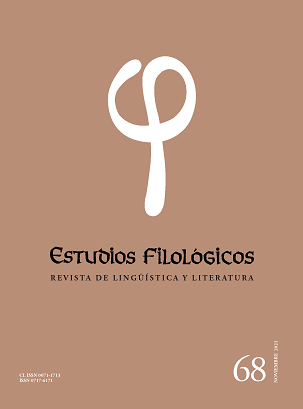Literality, irony and calculated ambiguity
Main Article Content
Abstract
This paper documents that in certain circumstances and in frequently used phrases, speakers intentionally neutralize the intonation of certain phrases in order to create ambiguity. The expression chosen to analyse the above-mentioned phenomenon is the Spanish expression ¡qué cabrón! [what a bastard!] which in a literal sense is strongly offensive, but when declared ironically, acquires a meaning close to praise. The recording of free conversations among young people presents different categories of intonations depending on the linguistic and extra linguistic context in which they are pronounced. The analysis of the information shows that the neutralization of the standard intonation seems to be related to the tension produced in the individual due to a conflict between the expressed and his or her convictions (dissonance), or between the expressed and the norms and values that bond the group he or she belongs to (incongruence).

